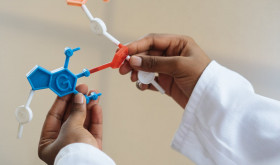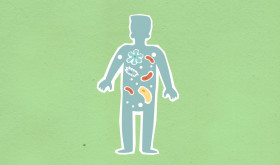
Your Gut’s Best Friend: Maintaining a Healthy Lifestyle for a Happy Colon
Introduction
When it comes to overall well-being, few things are as important as maintaining a healthy colon. The colon, or large intestine, plays a crucial role in the digestion and elimination of waste. A happy colon is not only essential for proper digestion but also for overall health and vitality. In this article, we will explore the significance of colon health and provide practical tips on how to maintain a healthy lifestyle that promotes a happy colon. By implementing these strategies, you can take charge of your gut health and pave the way for a vibrant and thriving life.
Understanding Colon Health
The colon is responsible for absorbing water, electrolytes, and nutrients from the digested food that passes through it. It also eliminates waste materials and toxins from the body. When the colon is functioning optimally, it promotes regular bowel movements, prevents constipation, and aids in the prevention of digestive disorders such as irritable bowel syndrome (IBS) and colorectal cancer.
Maintaining a Healthy Diet
A healthy diet is crucial for maintaining colon health. Focus on consuming a variety of fiber-rich foods such as fruits, vegetables, whole grains, and legumes. Fiber helps promote regular bowel movements and prevents constipation. It also acts as a prebiotic, nourishing the beneficial bacteria in the gut.
Stay adequately hydrated by drinking plenty of water throughout the day. Water helps soften the stool and supports proper bowel movements. Avoid excessive consumption of processed foods, sugary beverages, and alcohol, as they can disrupt the natural balance of the gut microbiota and contribute to digestive issues.
Regular Exercise and Physical Activity
Regular physical activity not only benefits your overall health but also plays a significant role in maintaining colon health. Engaging in regular exercise helps stimulate intestinal contractions, promoting healthy bowel movements and reducing the risk of constipation.
Include a mix of aerobic exercises, such as brisk walking, jogging, or swimming, along with strength training exercises. Aim for at least 30 minutes of moderate-intensity exercise most days of the week. Additionally, incorporating simple activities like taking the stairs instead of the elevator or going for a short walk after meals can also be beneficial for your colon.
Managing Stress
Chronic stress can have a negative impact on the digestive system, including the colon. Stress can lead to changes in gut motility, causing constipation or diarrhea. It can also disrupt the balance of the gut microbiota.
To manage stress effectively, consider incorporating stress-reduction techniques into your daily routine. This may include practices such as meditation, deep breathing exercises, yoga, or engaging in hobbies that bring you joy and relaxation. Prioritising self-care and taking time for yourself can go a long way in promoting a healthy colon.
Regular Check-ups and Screening (250 words): Regular check-ups with your healthcare provider are crucial for maintaining colon health. Discuss your family history and any concerns you may have regarding your digestive health. Depending on your age and risk factors, your doctor may recommend screenings such as colonoscopy or stool tests to detect any signs of colorectal cancer or other abnormalities in the colon.
Conclusion
Your colon is an integral part of your digestive system and plays a vital role in your overall health. By adopting a healthy lifestyle that includes a balanced diet, regular exercise, stress management, and regular check-ups, you can nurture your gut health and ensure a happy colon. Remember, small changes in your daily habits can make a significant difference in maintaining optimal colon health and promoting overall well-being. Take care of your gut, and it will be your best friend for life.















